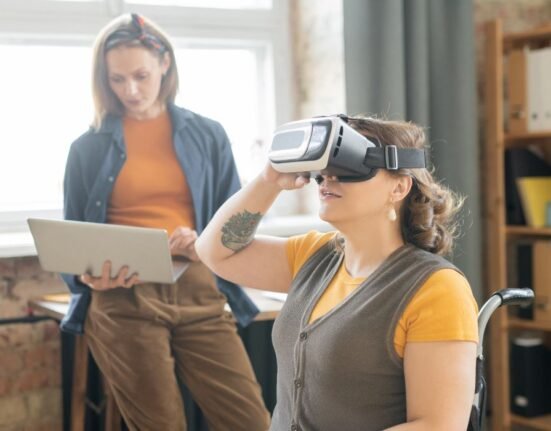Technology is a dynamic discipline where new devices and the use of existing ones appear on a normal foundation. The old generation should discover it is hard to keep up with those changes, whereas younger generations regularly seem to modify them effectively. This will cause a significant gap between older parents and the possibilities that technology can offer, as well as between generations.
Digital literacy is also crucial, and naturally, elderly people have greater difficulty with this than do younger generations. The pandemic has highlighted how crucial it is to possess the digital abilities required to succeed in these virtual times and use the internet. An excellent illustration would be the challenges older adults face in getting appointments for the COVID-19 vaccine.
Challenges faced by the Elderly Generation
1) Fear of gadgets and technology:
Older generations may feel intimidated by using the fast charge of technological development. It is horrifying to learn how to use computers, drugs, and smartphones, which makes human beings reluctant to use those technologies. The psychological hurdle of “breaking” technology is an average one.
2) Lack of familiarity with updating technology:
Older generations may not have been able to technology in the same way as more youthful generations, which has left them much less informed about its functions. This could cause one to feel intimidated and fearful about using generation improperly.
3) Fear of making errors:
Whilst utilizing technology, older people often get surrounded by the fear of creating errors. Their issues with revealing exclusive records, by chance erasing files, and falling into internet fraud can discourage them from the usage of the era. It could be crippling to fear making mistakes that can’t be undone.
4) Cognitive limitations:

Adapting to a new generation can be increasingly tough as humans age due to cognitive feature deterioration. Obtaining proficiency in the usage of complex software, greedy the nuances of social media networks, or comprehending smartphone settings can be cognitively demanding. Cognitive limitations may also make it more difficult for them to research new technologies.
5) Loss of Digital Literacy:
A variety of senior residents struggle with fundamental digital literacy duties like emailing, net surfing, and utilising online banking. Their loss of acquaintance with those increasingly critical capabilities can make them feel alienated from cutting-edge tradition.
6) Physical boundaries:
Bodily disabilities like terrible vision or reduced dexterity can from time to time make the use of generation more difficult. The particular needs of aged customers might not usually be considered in the design of virtual interfaces, which makes it more difficult for them to use gadgets and apps.
The use of certain eras, like smartphones or touchscreen gadgets, may be difficult for older human beings because of age-related changes in their eyesight, hearing, and dexterity.
Filling the Gap
1) Maintain Social Connections:
When physical distance or mobility limitations make a person encounter difficult situations, technology can help the older generation stay in touch with their family and friends. Social media, messaging applications, and video conversations help human beings to maintain and grow their social networks.
2) Socioeconomic variables:
Variables such as income level or lack of high-speed internet access might restrict access to technology. This makes the digital gap even worse.
3) Getting access to Information:
From information updates to fitness recommendations, the internet offers a range of statistics on a wide variety of subjects. Older people who are tech savvy can get entry to useful gear that assists them live related to the outdoor internationals and make educated selections.
4) Health and Safety:
The gear for tracking fitness and obtaining scientific interest is furnished through wearable technology, cellphone apps, and health offerings. Those trends can improve senior residents’ protection and health-being properly taken care of. They are able to aid in higher health control.
5) Lifelong Learning:
For older folks, learning how to use technology may be a rewarding experience. It provides access to digital libraries, online courses, and the opportunity to pursue new interests, so opening the door to lifelong learning. The search for knowledge is still feasible.
6) Independence:
Technology can help older people become more independent by letting them use online grocery ordering, money management, and transportation services. Their sense of self-worth is increased by their freedom. They are able to continue feeling independent.
Safety for the Elder Generation
Numerous steps may be taken to fill the generational gap with respective technology:
1) Virtual Literacy packages:

To meet the wishes and abilities of senior citizens, communities and agencies ought to offer digital literacy packages. These courses consist of fundamental abilities, net safety, and familiar utility usage. They are able to cope with their loss of computer literacy and intimidation.
2) Consumer-pleasant:
When developing personal interfaces, builders must take senior users’ demands into consideration. . This takes under consideration their physical and intellectual constraints.
3) Affected person training and assistance:
Friends, circle of relatives, and caregivers may be very helpful in supporting senior citizens to discover ways to use technology. ordinary aid, empathy, and staying power can help them develop into extra self-assured customers. when it comes to the tension of creating mistakes, they can offer consolation.
4) Peer-to-Peer knowledge:
Through the sharing of reports and statistics, peer-to-peer knowledge groups can be beneficial for older people. Due to the fact that college students can relate to the reviews of their friends, this fosters a useful and inspiring way to gain knowledge of their surroundings.
5) Generation-friendly Tech policies:
To ensure that senior citizens are not left behind in the virtual generation, policymakers ought to bear in mind legal guidelines and applications that aid age-pleasant technology. Rules can assure fair access to generation and mandate person-friendly interfaces.
Initiatives
Several programs have been put in place in different communities to empower older people and close the digital divide. Among the noteworthy instances are:
- The Senior Planet program is an AARP effort that offers free technological help and training to senior citizens nationwide. The curriculum provides instruction on a range of subjects, such as social media, internet safety, and computer fundamentals.
- The Technology Access Foundation’s Grandparents Go Digital program gives senior citizens access to reasonably priced tablets along with individualized instruction on how to utilize them. Numerous senior citizens have benefited from the initiative by being able to access vital online services and maintain relationships with loved ones.
- The National Council on Aging’s Tech Connect program awards money to community organizations so they can conduct technology-based training courses for senior citizens. Over 400 projects have benefited from program funding nationwide.
Another essential component is the capacity to practice new abilities. Ideally, older individuals would attend a weekly session and then have access to a tablet or laptop for on-the-go practice. To enable this, several libraries are creating programs for laptop checkout. Older people are getting better at remembering new skills when they have access to multimedia tools for practice and review of what they have learned in class— this method is known as “blended workshops.” A newly built infrastructure is required for teaching tech to these populations in this place, at least in part; older people have already demonstrated their ability to pick up new online skills; and there is a wealth of knowledge from community centers, librarians, and others who have imparted those early lessons.
Book, which can help old age people with technology use
- Technology Tips for Seniors
- Smart Technology For Aging, Disability And Independence
- Digital Literacy For Senior Citizens













Leave feedback about this